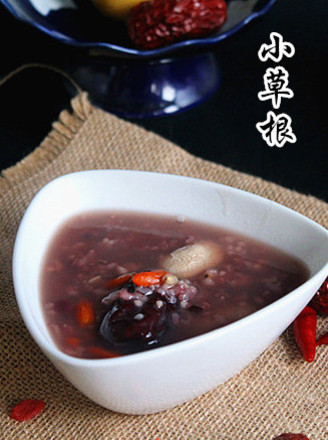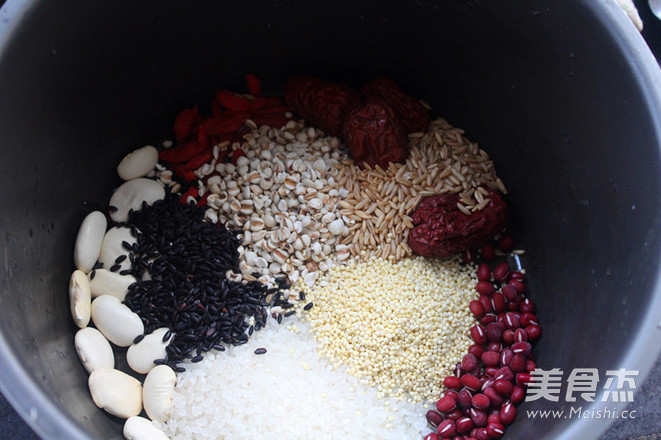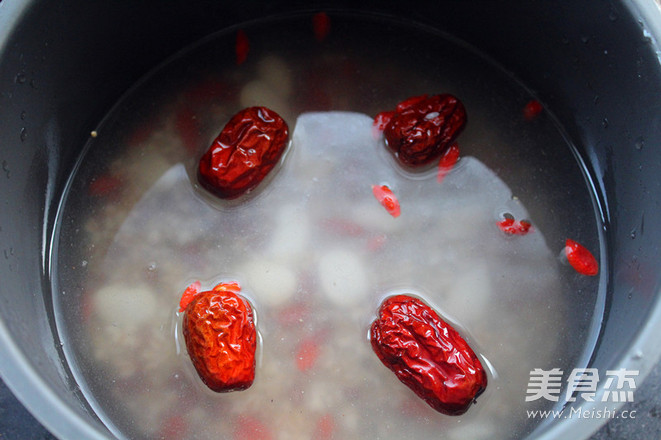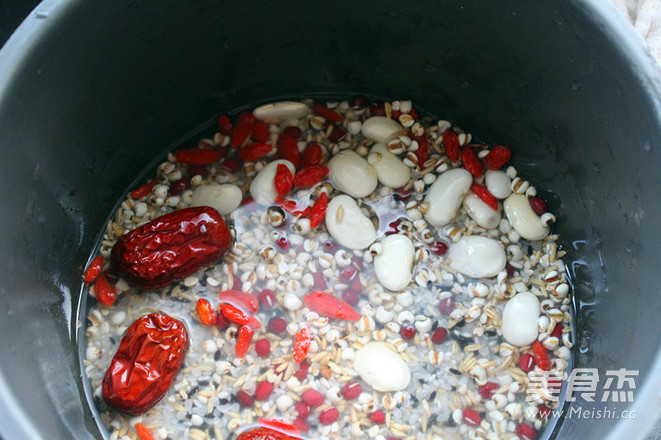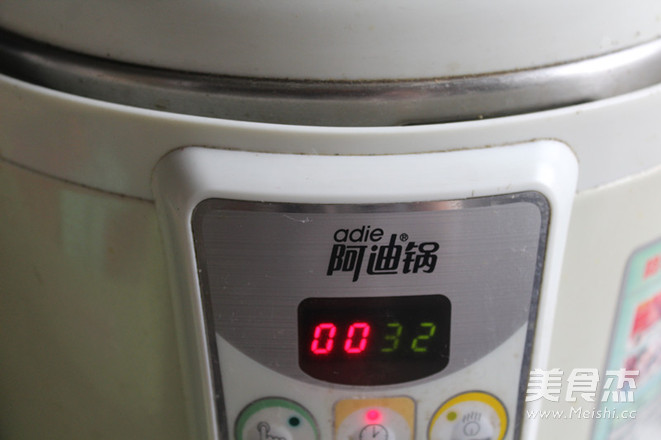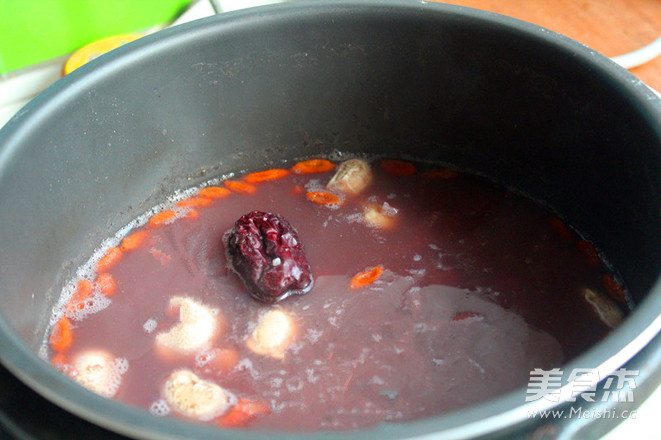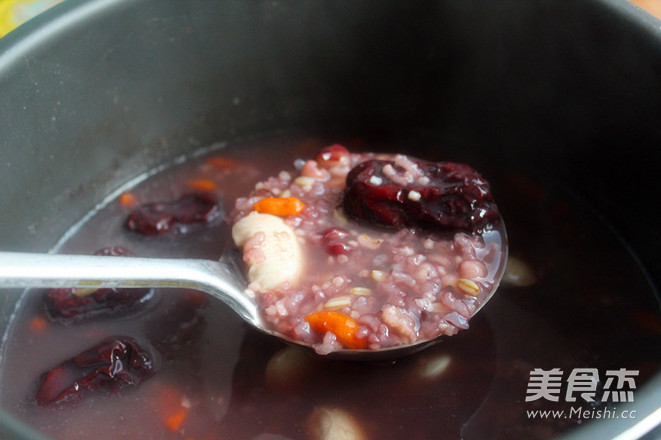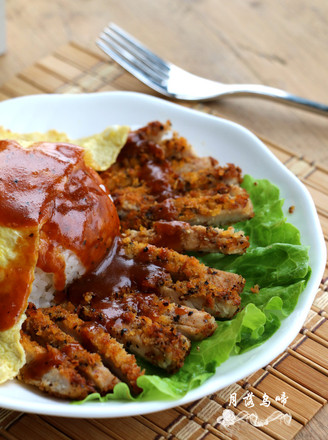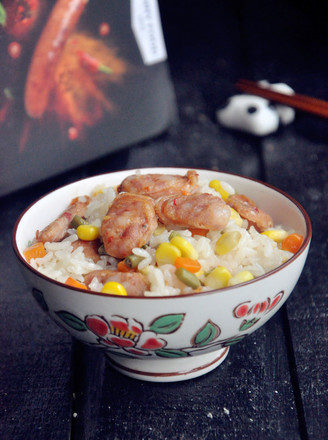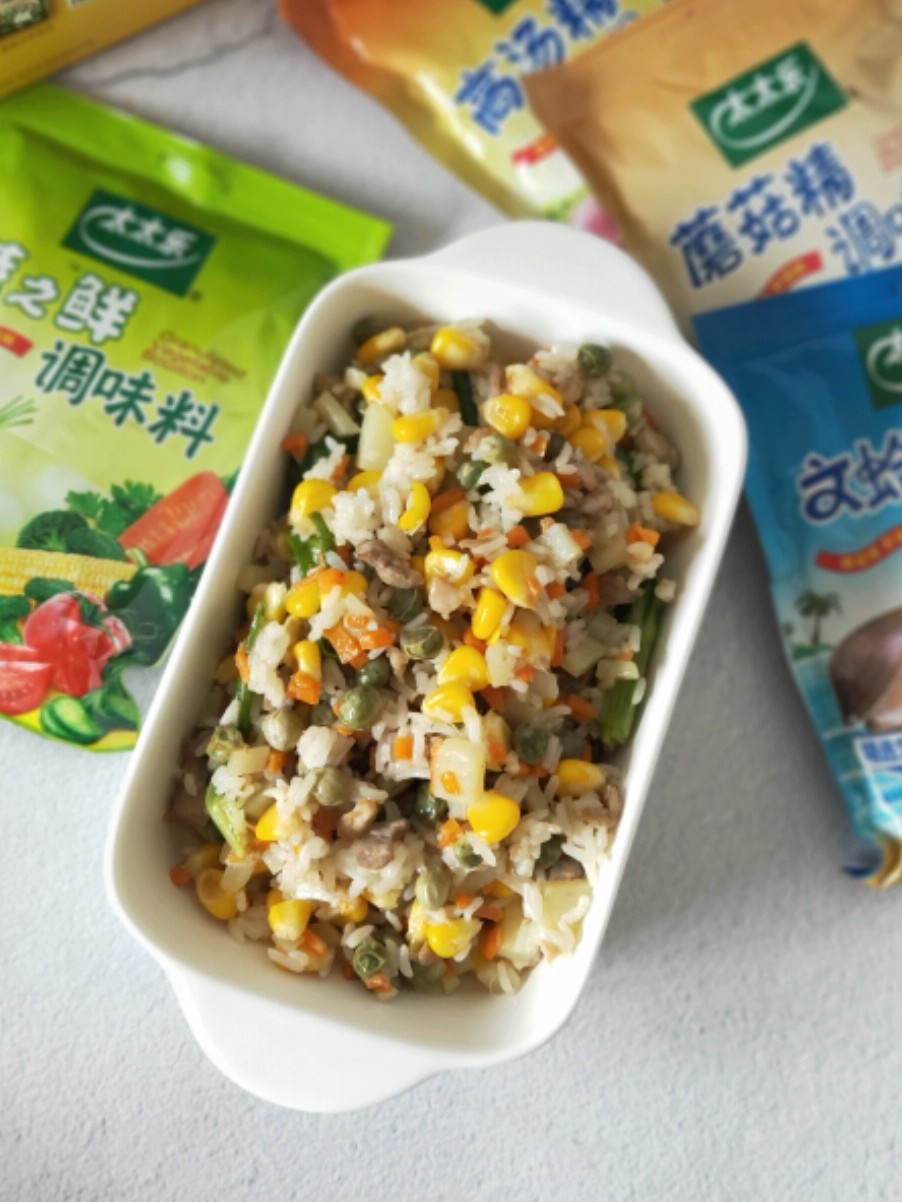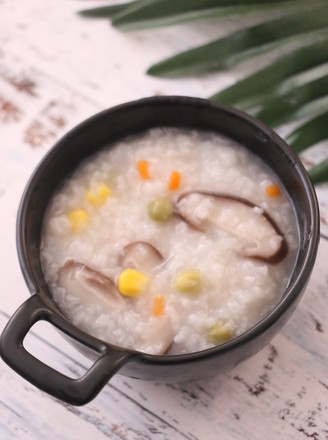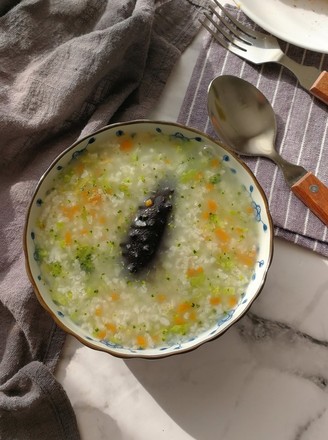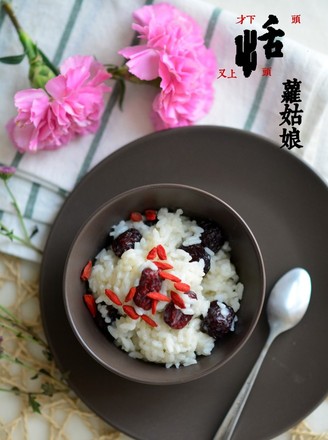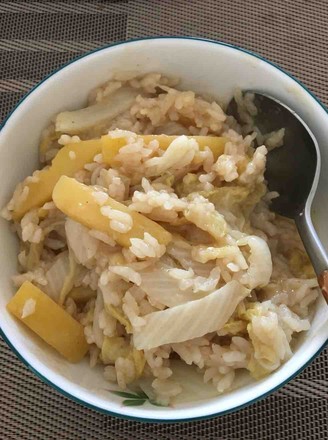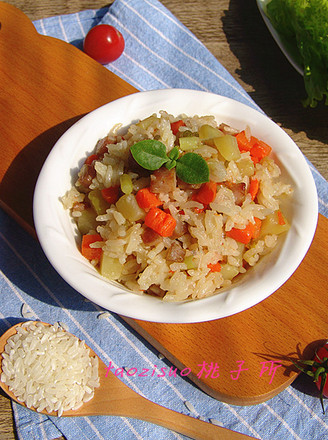Laba Congee
by Zimo (Little Grassroots Family Food)
Favorite
Difficulty
Easy
Time
30m
Serving
3
The most common custom during the Laba Festival is to drink Laba porridge. The origins of Laba Congee have been divergent. There are roughly the following legends:
1 "Buddha practice" says:
It is said that Laba porridge originated from India. The founder of Buddhism, Shakyamuni, was originally the son of King Jingfan in Kapilavastry (in present-day Nepal) in northern India. He saw sentient beings suffering from birth, aging, sickness, and death, but was dissatisfied with the theocratic rule of the Brahman at that time, abandoning the throne, and becoming a monk. At first there was no harvest, and after six years of asceticism, on the eighth day of the twelfth lunar month, he enlightened and became a Buddha under the Bodhi tree. During these six years of asceticism, I only ate one hemp and one meter a day. Later generations will not forget his sufferings and eat porridge on the eighth day of the twelfth lunar month as a commemoration. "Laba" became "the anniversary of Buddha's enlightenment."
2 "The shepherd's chyle saves the Buddha" said:
This is the most widely circulated and most recognized statement. Legend has it that the Buddha Shakyamuni left the palace to practice, but he had no results after years of hard practice. He thought of bathing in the river to clear his mind. After the bath, his body was weak and unable to climb back to the shore. The shepherd Suyada (meaning good student) pulled him ashore and gave him a bowl of porridge made with rice and chestnuts. After eating, the Buddha was full of energy and came to realize his enlightenment under the Bodhi tree. This day happens to be the eighth day of December in the lunar calendar. Buddhism disciples regard porridge as a good medicine. The temple offers porridge to the Buddha every year on Laba Day, and alms to the world. Affected by this, the folks in our country gradually formed the custom of eating porridge Laba.
3 "Qin Great Wall Construction" said:
Legend has it that when Qin built the Great Wall, migrant workers lived and ate and lived on construction sites all year round, but their families had to deliver food. Some people could not deliver food in time due to their remote homes or poverty. One year, on Laba, the migrant workers had no food. Everyone searched the food bags and gathered all kinds of food including beans, rice, etc., and boiled it. I ate a pot of porridge, but eventually starved to death. In order to mourn these migrant workers, people eat Laba porridge every year when they come to Laba.
4 "Baowa repented" said:
Legend has it that a person named Baowa was lazy and playful, and lived a luxurious life, and soon ruined the family fortune left by his parents. On the eighth day of the twelfth lunar month, everyone else began to prepare new year goods, but his granary had bottomed out. Looking at the tearful daughter-in-law Lahua, Baowa was ashamed. When the neighbors heard that the east had a bowl of rice, and the west had a bowl of beans, they sent a variety of food and vegetables. Lahua combined the food and vegetables sent by the villagers, cooked a pot of porridge, and solved the temporary difficulties. From then on, Baowa not only worked hard, but also lived frugally and quickly became wealthy. In order to let Baowa always remember this lesson, Lahua makes Laba porridge every year. People also eat Laba porridge on this day in order to educate their children with Baowa's stories, which has gradually become a custom.
5 "The prodigal son of the Zhang family" said that there is a folk story that a rich man named Zhang got his son in old age, and he was extremely doting on him. Just after the old couple passed away, this kid splurged the prodigal, and soon became a pauper. On Laba’s day, the north wind was whistling and Xiao Zhang was hungry and cold. He swept the bottom of the food stocks around the house and cooked a pot of porridge. But the porridge was not cooked well, and people died of freezing and starvation. In the future, people will make some grains and beans to make porridge in Laba, in order to warn future generations not to be extravagant, otherwise they will not even be able to drink the porridge.
Don't underestimate the Laba Festival. This festival has the effect of connecting the past and the future. Its arrival marks the official opening of the prelude to the traditional Chinese Spring Festival. The folk song says: "Laba, Laba, children want artillery, girls want flowers." From this day on, people began to buy new year goods to welcome the annual Chinese New Year. There is also a folk song saying, "Old lady, don't be upset, Laba is the new year. Laba porridge, drink a few days, and pull twenty-three..." Laba has arrived, will the Spring Festival be far behind? In other words, with the winter festival as the prelude and Laba as the symbol, the Chinese people who have worked hard for a year have entered the most comfortable and comfortable time of the year, and the carnival month of the Han nationality is about to begin.
1 "Buddha practice" says:
It is said that Laba porridge originated from India. The founder of Buddhism, Shakyamuni, was originally the son of King Jingfan in Kapilavastry (in present-day Nepal) in northern India. He saw sentient beings suffering from birth, aging, sickness, and death, but was dissatisfied with the theocratic rule of the Brahman at that time, abandoning the throne, and becoming a monk. At first there was no harvest, and after six years of asceticism, on the eighth day of the twelfth lunar month, he enlightened and became a Buddha under the Bodhi tree. During these six years of asceticism, I only ate one hemp and one meter a day. Later generations will not forget his sufferings and eat porridge on the eighth day of the twelfth lunar month as a commemoration. "Laba" became "the anniversary of Buddha's enlightenment."
2 "The shepherd's chyle saves the Buddha" said:
This is the most widely circulated and most recognized statement. Legend has it that the Buddha Shakyamuni left the palace to practice, but he had no results after years of hard practice. He thought of bathing in the river to clear his mind. After the bath, his body was weak and unable to climb back to the shore. The shepherd Suyada (meaning good student) pulled him ashore and gave him a bowl of porridge made with rice and chestnuts. After eating, the Buddha was full of energy and came to realize his enlightenment under the Bodhi tree. This day happens to be the eighth day of December in the lunar calendar. Buddhism disciples regard porridge as a good medicine. The temple offers porridge to the Buddha every year on Laba Day, and alms to the world. Affected by this, the folks in our country gradually formed the custom of eating porridge Laba.
3 "Qin Great Wall Construction" said:
Legend has it that when Qin built the Great Wall, migrant workers lived and ate and lived on construction sites all year round, but their families had to deliver food. Some people could not deliver food in time due to their remote homes or poverty. One year, on Laba, the migrant workers had no food. Everyone searched the food bags and gathered all kinds of food including beans, rice, etc., and boiled it. I ate a pot of porridge, but eventually starved to death. In order to mourn these migrant workers, people eat Laba porridge every year when they come to Laba.
4 "Baowa repented" said:
Legend has it that a person named Baowa was lazy and playful, and lived a luxurious life, and soon ruined the family fortune left by his parents. On the eighth day of the twelfth lunar month, everyone else began to prepare new year goods, but his granary had bottomed out. Looking at the tearful daughter-in-law Lahua, Baowa was ashamed. When the neighbors heard that the east had a bowl of rice, and the west had a bowl of beans, they sent a variety of food and vegetables. Lahua combined the food and vegetables sent by the villagers, cooked a pot of porridge, and solved the temporary difficulties. From then on, Baowa not only worked hard, but also lived frugally and quickly became wealthy. In order to let Baowa always remember this lesson, Lahua makes Laba porridge every year. People also eat Laba porridge on this day in order to educate their children with Baowa's stories, which has gradually become a custom.
5 "The prodigal son of the Zhang family" said that there is a folk story that a rich man named Zhang got his son in old age, and he was extremely doting on him. Just after the old couple passed away, this kid splurged the prodigal, and soon became a pauper. On Laba’s day, the north wind was whistling and Xiao Zhang was hungry and cold. He swept the bottom of the food stocks around the house and cooked a pot of porridge. But the porridge was not cooked well, and people died of freezing and starvation. In the future, people will make some grains and beans to make porridge in Laba, in order to warn future generations not to be extravagant, otherwise they will not even be able to drink the porridge.
Don't underestimate the Laba Festival. This festival has the effect of connecting the past and the future. Its arrival marks the official opening of the prelude to the traditional Chinese Spring Festival. The folk song says: "Laba, Laba, children want artillery, girls want flowers." From this day on, people began to buy new year goods to welcome the annual Chinese New Year. There is also a folk song saying, "Old lady, don't be upset, Laba is the new year. Laba porridge, drink a few days, and pull twenty-three..." Laba has arrived, will the Spring Festival be far behind? In other words, with the winter festival as the prelude and Laba as the symbol, the Chinese people who have worked hard for a year have entered the most comfortable and comfortable time of the year, and the carnival month of the Han nationality is about to begin.

